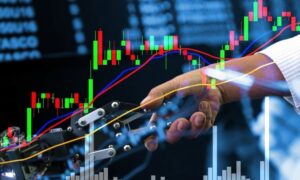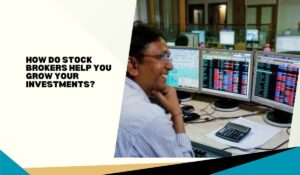What is Futures Trading? A Simple Explanation for Beginners
What is Futures Trading?
Futures trading is a financial activity where two parties agree to buy or sell an asset at a specific price at a set date in the future. These assets can be commodities like gold, oil, and agricultural products, or financial products like stock indices and currencies. Unlike traditional stock trading, where you buy or sell actual shares or assets, futures trading involves contracts. These contracts allow traders to speculate on the future price of an asset without ever owning it. For more information and the latest updates, check out DigitalXCore. Futures trading is mainly done on regulated exchanges like the Chicago Mercantile Exchange (CME) or the Intercontinental Exchange (ICE).”
How Does Futures Trading Work?
Futures contracts work by setting a price for an asset today, which will be used for a transaction at a future date. The two main types of futures contracts are long and short.
Long Futures Contract
A long futures contract means you agree to buy an asset in the future at a set price. Traders take a long position if they believe the price of the asset will rise. If the price increases, they can sell the contract for a profit.
For example, if you buy a futures contract for 100 barrels of oil at $60 each, and in the future, the price of oil rises to $70, you can sell the contract and make a $10 profit per barrel.
Short Futures Contract
A short futures contract means you agree to sell an asset at a set price in the future. Traders take a short position if they believe the price will fall. If the price drops, they can buy back the contract at a lower price and make a profit.
For example, if you sell a futures contract for 100 barrels of oil at $60 each, and the price of oil drops to $50, you can buy back the contract and make a $10 profit per barrel.
Why Do People Trade Futures?
Futures trading serves two main purposes: hedging and speculation.
1. Hedging
Hedging is when businesses use futures contracts to protect themselves from price changes in the future. For instance, a farmer might sell a futures contract for wheat to lock in a price for the harvest. This protects the farmer from the risk of prices falling when the wheat is ready for sale.
Similarly, an airline might buy fuel futures contracts to secure a fixed price for fuel, preventing higher costs if fuel prices rise unexpectedly.
2. Speculation
Speculators buy and sell futures contracts with the goal of making a profit from price movements. They do not plan to take physical delivery of the asset but aim to benefit from the price difference when they sell their contract. Speculators can trade on both rising and falling markets, as futures allow them to take both long and short positions.
Benefits of Futures Trading
Futures trading offers several advantages to traders and investors. Here are some key benefits:
1. High Liquidity
Futures markets are highly liquid, meaning that buying and selling contracts is easy. With many participants, it’s possible to quickly enter and exit trades without significantly affecting prices.
2. Flexibility
Futures contracts are available for a wide range of assets, from agricultural products like wheat and corn to financial products like stock indices, interest rates, and even cryptocurrencies. This variety offers traders many opportunities to find a market that suits their strategy.
3. Leverage
Leverage allows traders to control a larger position than they would with their initial investment. With futures, you only need to put up a fraction of the contract’s value, called the margin. This means you can control a larger amount of an asset with a smaller investment. However, while leverage can increase profits, it also magnifies losses if the market moves against you.
4. Transparency
Futures markets are regulated and transparent. All trades and prices are publicly available, which helps ensure that everyone has access to the same information and a fair trading environment.
Risks of Futures Trading
While futures trading offers many benefits, it also comes with significant risks. Understanding these risks is important before engaging in futures trading.
1. Risk of Large Losses
The use of leverage means that traders can lose more than their initial investment. If the market moves against a trader’s position, they may be required to deposit additional funds to cover losses. In some cases, they could lose more money than they invested.
For example, if a trader buys a futures contract for oil at $60, but the price of oil falls to $40, they may be forced to sell at a loss and even owe more than their initial investment.
2. Market Volatility
Futures markets can be volatile, especially in commodities like oil or agricultural products. Prices can change rapidly due to factors like weather events, geopolitical issues, or economic data. While this volatility can present opportunities for profit, it can also lead to substantial losses.
3. Margin Calls
Futures trading requires a margin, which is a deposit you make to open a position. If the market moves against your position and your account balance drops below the required margin, you will receive a margin call. This means you must add more money to your account to maintain the position. If you don’t, the position may be liquidated at a loss.
4. Complexity
Futures trading can be complicated, especially for beginners. Understanding market movements, predicting price trends, and using technical analysis can take time to learn. Without a solid understanding of the market and the instruments being traded, traders may make costly mistakes.
Key Factors That Affect Futures Prices
Several factors influence futures prices, and traders need to consider them when making decisions.
1. Supply and Demand
Supply and demand play a huge role in futures prices, especially in commodity markets. For example, if there is a drought that affects the supply of wheat, the price of wheat futures will likely rise due to reduced supply. Conversely, if supply increases, prices may fall.
2. Weather
Weather conditions can dramatically impact commodity markets, particularly agricultural products like wheat, corn, and coffee. A storm or drought can reduce crop yields, causing prices to rise, while favorable weather conditions can lead to higher supply and lower prices.
3. Geopolitical Events
Political events, such as wars, trade agreements, or sanctions, can affect futures markets, especially those related to oil, gold, and other commodities. For example, if a major oil-producing country experiences political instability, the price of oil futures could rise due to concerns over supply disruptions.
4. Economic Data
Economic data, such as GDP growth, employment reports, or inflation data, can influence futures prices. Strong economic performance may lead to rising prices in stock indices, while weak economic data could cause declines.
Futures Trading vs. Other Types of Trading
Futures trading differs from other types of trading, such as stock trading and options trading.
1. Futures vs. Stock Trading
Stock trading involves buying and selling shares of individual companies. When you buy a stock, you own a piece of that company. In contrast, futures trading involves buying or selling a contract for an underlying asset, without owning the actual asset.
While stocks are bought and sold in the hopes of long-term growth, futures trading is generally used for short-term speculation or hedging against price changes.
2. Futures vs. Options Trading
Both futures and options are derivative instruments, meaning their value is derived from an underlying asset. However, the key difference is that futures contracts obligate the buyer to buy (or the seller to sell) the asset at a specific time, while options contracts give the buyer the right, but not the obligation, to buy or sell the asset.
Futures are generally considered more risky because there is an obligation to follow through with the contract, while options provide more flexibility.
Getting Started with Futures Trading
If you’re interested in futures trading, here’s how to get started:
1. Open a Futures Trading Account
To start trading futures, you will need to open an account with a futures broker. These brokers give you access to futures exchanges and provide the necessary tools for trading.
2. Learn the Basics
Before diving into futures trading, it’s important to learn the basics. Understand how futures contracts work, the markets you want to trade, and how to use risk management tools like stop-loss orders.
3. Practice with a Demo Account
Many brokers offer demo accounts that let you practice trading without risking real money. Use this opportunity to get familiar with the platform and trading strategies.
4. Start Small
Begin by trading small contracts and gradually increase your positions as you gain more experience and confidence in your trading strategy.
5. Use Risk Management Tools
Futures trading is risky, so it’s important to use tools like stop-loss orders to limit potential losses. Always have a risk management plan in place before entering a trade.
Conclusion
Futures trading can be an exciting and profitable way to invest in a variety of markets, from commodities to stock indices. However, it’s not without risks. By understanding how futures contracts work, learning the factors that influence prices, and using risk management tools, traders can increase their chances of success in this complex market.
Start small, practice, and always continue learning to master the art of futures trading.














Post Comment